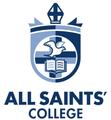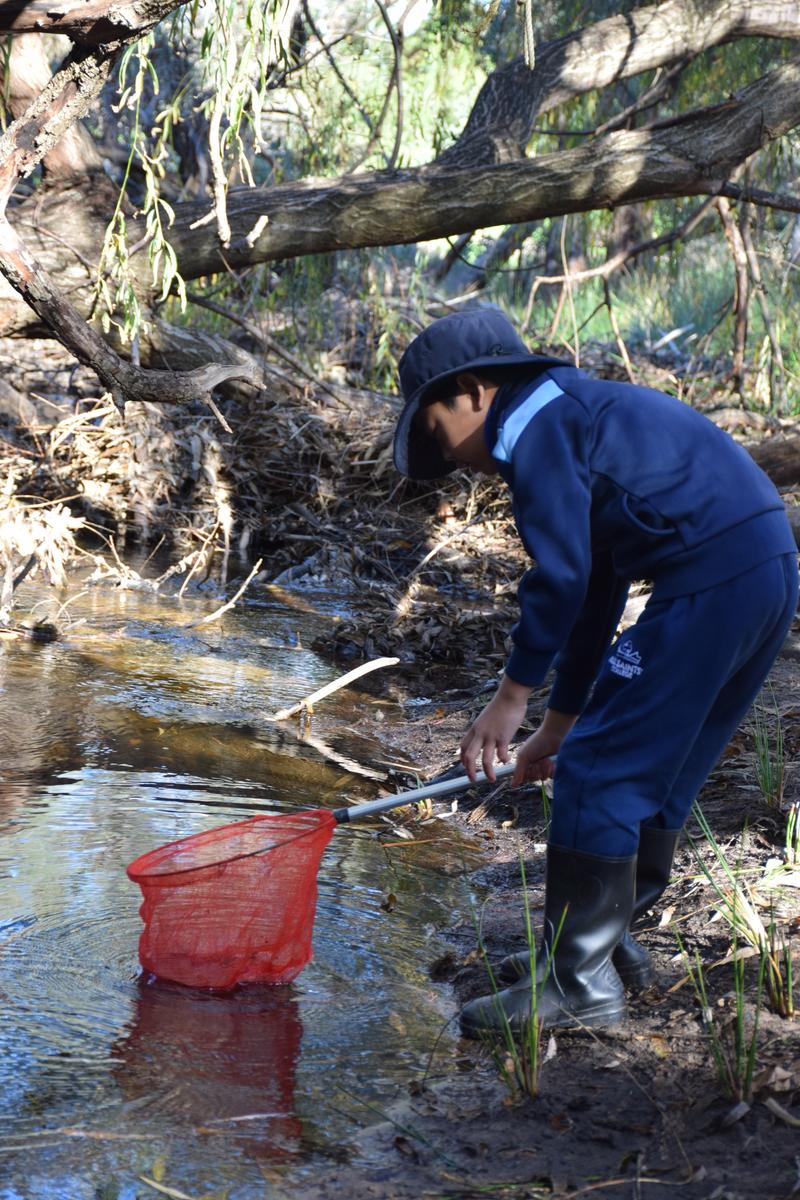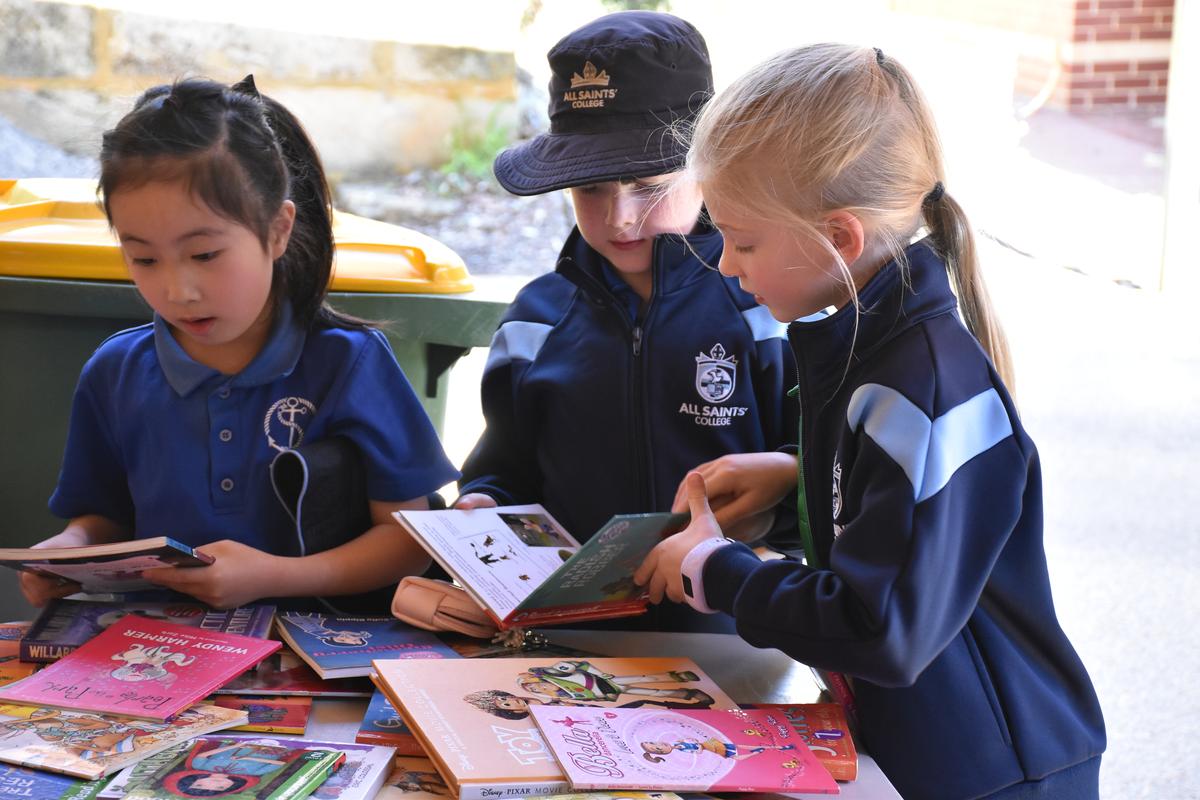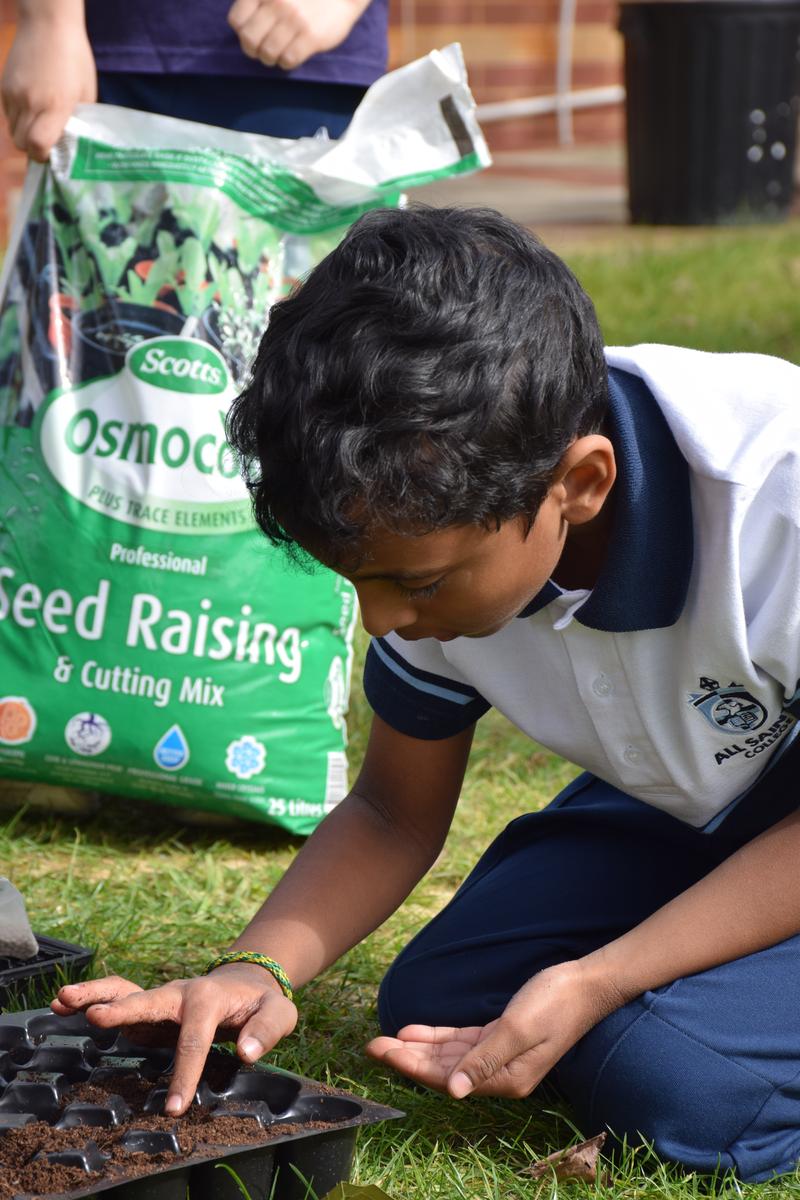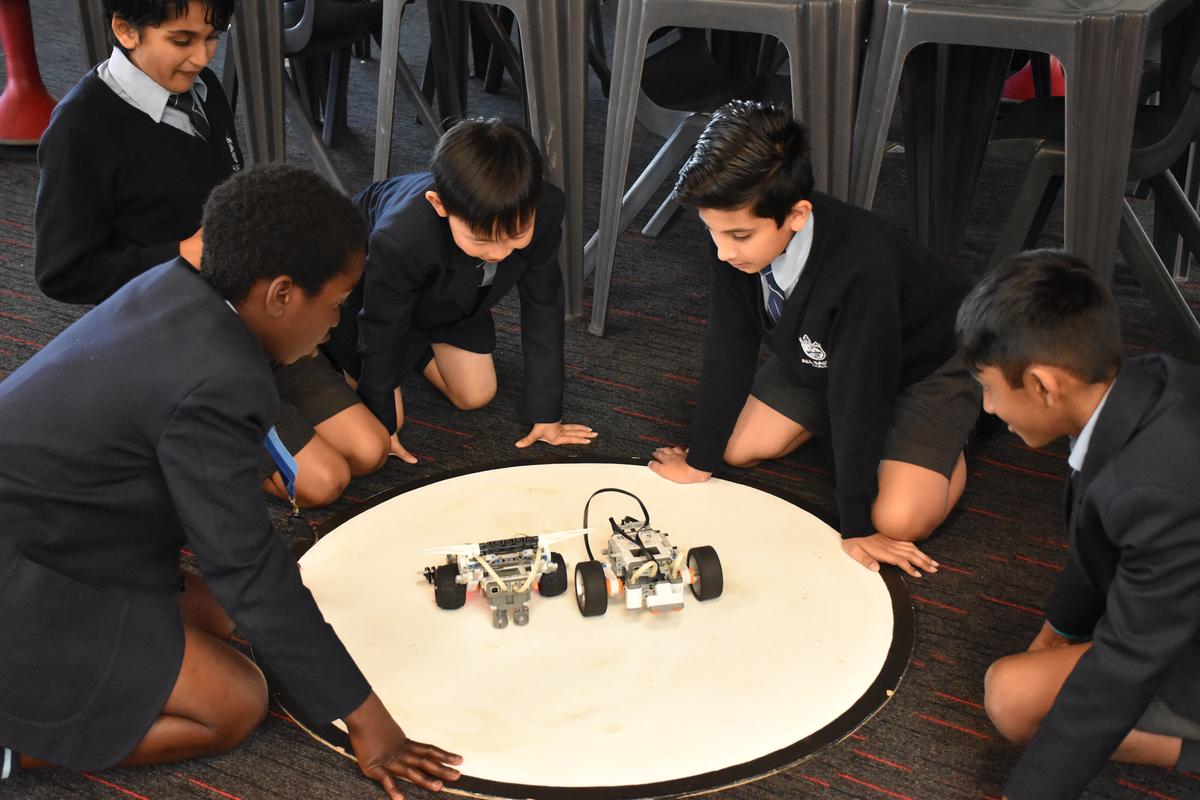Curriculum

At the start of each term a class overview is placed on MyASC. Class timetables are available on SEQTA. The programs are differentiated within the classroom to account for the needs of individual children.
Learning Intervention and Opportunities
In the event that a child is achieving well above or below the academic expectations of their year level, or having difficulty accessing the curriculum, their parents are notified and a meeting is arranged with the class teacher. In partnership with families, a plan will be put in place to address the situation, to optimise learning for the child.
Referrals
On occasion, teachers in consultation with parents may refer children to visit specialists – such as a speech therapist, occupational therapist, physiotherapist, educational psychologist, audiologist, optometrist, or paediatrician – to identify specific learning needs and assist them to access the curriculum appropriately. College staff may also be involved, in consultation with the Dean of Junior School, in assisting to make adjustments to your child’s learning and teaching program. When referrals are made, it is important that there is close communication between the teacher, the parents and the specialist. Any specialist reports need to be made available to the College to inform the teachers, who are then able to make adjustments to the child’s learning program.
Assessment
Assessment is an essential element of effective teaching and learning programs. Teachers regularly use in-class observations, informal and formal assessments to inform their programs, to be responsive to the child’s needs, to provide feedback and to monitor their students’ progress. These assessments are used in conjunction with the College’s annual standardised testing programs using ACER as well as national NAPLAN tests in Years 3, 5, 7 and 9. Our students are taught self-assessment, goal setting and reflection skills.
Excursions and Outdoor Learning Programs
Off-campus educational and outdoor learning activities are organised for students in Kindergarten – Year 6. When an excursion is organised, details are made available via SEQTA on the year level pages. A general consent form is sent to College families at the start of the year covering all general incursions, excursions and carnivals. Separate consent is still required for all College tours or Outdoor Learning Program camps. Children are not permitted to take part in an excursion if the form is not signed and received by the College prior to the group departing.
Toys and Items of Interest
Students are encouraged to bring to school items of interest relevant to a topic being studied in class. Other toys and personal items are to remain at home to avoid being lost or damaged at school.
Home Learning Policy
Connecting Learning at Home and School
The College’s Strategic Plan Benang includes Goal 2: Learning. Objective 2.1 describes our commitment to developing a broad, engaging and responsive curriculum that meets the needs of our diverse student population.
The Pre-Primary – Year 6 homework grid links learning at school with learning that occurs in other venues. This includes Family/Community Service, Service Learning, Nature Connect, Cocurricular Activities, Lifelong Learning and This Week’s Task.
We suggest the following time allocation:
- Pre-Primary 10–15 minutes per night, four nights a week
- Years 1–2 15–20 minutes per night, four nights a week
- Years 3–4 20–30 minutes per night, four nights a week
- Year 5 30–45 minutes per night, four nights a week
- Year 6 45–60 minutes per night, four nights a week
However, in response to mounting evidence about the importance of unstructured time for children to play, explore and create, we do not want to erode this time and so request that you consider a balance that suits your family and encourage your child to monitor their own time spent each night.
Reading every day is an expectation. Reading can be part of this time allocation. Many researchers have shown the benefits of reading aloud to children continue well into their teenage years. This can be part of home reading.
To facilitate a love of literature and reading, Pre-Kindergarten, Kindergarten and Pre-Primary students are encouraged to take home book kits to enjoy reading with their parents. From Term 2, Pre-Primary students begin to have early readers sent home.
Home Learning – Rationale behind the grid
The Home Learning Grid is a framework that the teachers use to set meaningful homework for their students. The categories included in the grid are explained below:
The intention of Family/Community Service is to ask students to perform an appropriate task or chore at home that they do not normally do, but which would benefit their family, eg setting the table, making their bed, taking out the rubbish, unpacking the dishwasher. Doing chores helps to develop self-sufficiency and a sense of responsibility. Importantly also, children acquire the understanding that a feeling of accomplishment follows a job well done, thus building self-esteem. It may also involve doing something that would benefit their community; eg if the child belongs to a group or club, there may be jobs that they could do in that setting. This may be more appropriate for older students.
The intention of the Nature Connect box is to encourage a connection with nature. One consistent message from different fields of expertise is that spending time in natural environments enhances a child’s physical, sociological and psychological development. Students can simply place a tick in the box if they did something that involved being out in nature, eg a picnic in a park, bike ride, swim in the ocean or river, fishing, gardening. From time-to-time teachers may make suggestions in this area.
The Cocurricular Activities box is designed to help students see that learning is lifelong and occurs in many and varied environments while honouring the diversity of learning in which students are involved. This box requires students to tick which ones apply to them or they may add their own.
The Lifelong Learning box encourages students to foster their intellectual curiosity and pursue something of interest to them. Opportunities for sharing with their peers also help develop self-confidence. It may involve a student talking to someone or completing a written piece. Again, the time requirements will vary, depending on your child’s year level.
Inquiry Learning
During an inquiry, our students are often inspired to pursue further knowledge, work on a project plan, or progress a task for their group.
As part of the Inquiry process in Years 3–6, teachers will allocate time at the end of a day for students to set their own out of school task if required. Our aim is for the student to take ownership of this aspect of their learning. Students will plan this work in their Student Diary.
The grid will be explained in class each week and students will have a week to complete the tasks. Opportunities for sharing will be given. We encourage you to respond to your child’s request for help, rather than rushing in to support them before he/she has attempted to complete the homework independently.
Cocurricular
The College’s extensive cocurricular program runs before and after school throughout the week and caters for the varying interests and talents of our students. Full details of the activities available are communicated to parents at the start of each term. Students are encouraged to choose their preferred activity carefully, and are expected to make a commitment for the duration of the activity.
Cocurricular activities are not available for Pre-Kindergarten to Pre-Primary students, while limited activities are available for Year 1 and Year 2 students. In the early years of schooling, the full day at school is often enough for the child to manage happily. As children grow and mature, they are ready for more challenges whilst maintaining a balance between self-determined choices of free activity, homework and organised activity.
Learn-to-Swim Program
Learn-to-Swim lessons are available for children from four years old upwards at the Aquatic Centre. Lessons are held every afternoon after school and on Saturday mornings. Children attending Out of School Hours Care will be taken to and collected from the Aquatic Centre by one of the program leaders. Further information is available by phoning 9313 9386.
Individual Music Lessons
Individual Music lessons, including Suzuki Strings lessons for Kindergarten – Year 2 students, are offered. Detailed information is available from the Music Department by phoning 9313 9397.
